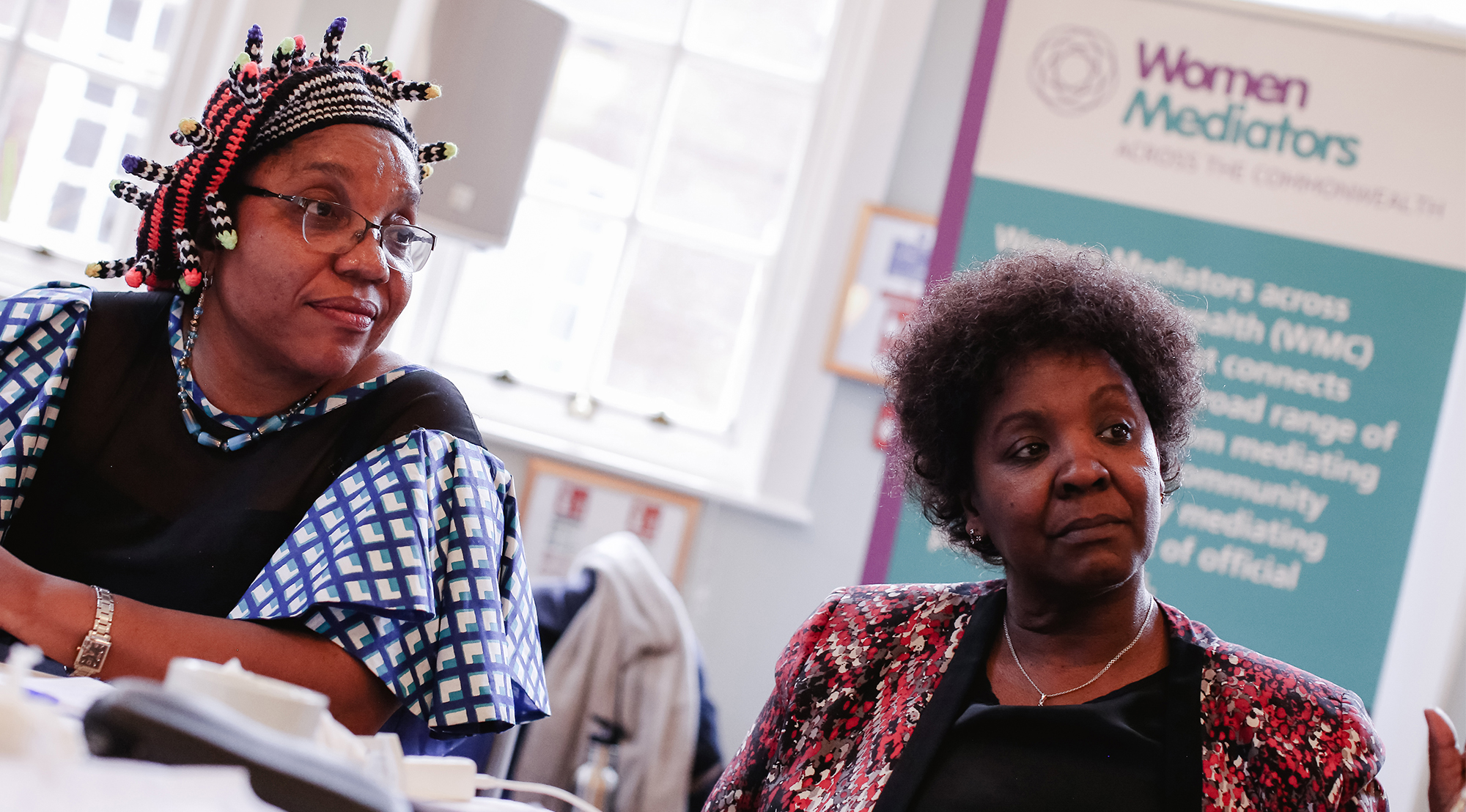The importance of UNSCR Resolution 1325 and the increased participation of women in peacebuilding has never been greater. The coronavirus pandemic has impacted women and girls in multiple and different ways, particularly in fragile and conflict-affected states. Women have been at the forefront of interventions, despite the continued lack of support or recognition for their work.
Climate change, environmental degradation, and subsequent resource scarcity and migration demand from communities to become ever more resilient, often in a context of poor economic and institutional structures. In the face of such challenges, the need for communities to have their own established and inclusive mechanisms for resolving conflicts is essential.
The Women Mediators across the Commonwealth (WMC) network, hosted by Conciliation Resources, has been documenting stories of women mediators working across multiple spaces at the community, national and regional levels, and in a range of sectors. Made from a diverse group of women in terms of age, ethnicity, and socioeconomic status, the work of WMC members focuses on wide-ranging issues from climate change to indigenous familial disputes to engagement in national and regional peace processes.
WMC members face multiple challenges, including a lack of funding, threats to personal security, and exclusion due to cultural and institutional gender bias. Despite this, they are finding ways to effectively mediate, bringing thematic expertise and alternative, inclusive perspectives to a wide range of issues from election monitoring and land conflicts to engaging with armed groups.
Women mediators play a vital role in peacebuilding and conflict prevention but with little visibility, recognition, or protection. It is through ongoing and concerted efforts to overcome the barriers presented, by proactively stepping up to mediate where the situation demands and working in careful collaboration with a broad range of stakeholders. WMC members are bringing communities together to dialogue and resolve conflict through peaceful and non-violent means.
Strategies include gradually building up credibility to form bonds and create inroads where it may at first seem impossible; knowing their capabilities and when to step back, to allow others to take center stage; and creatively sustaining relationships. In addition, women mediators have detailed knowledge of the skills, techniques, and processes required for inclusive mediation and adapt these to fit the cultural context and needs of the stakeholders and communities involved.
Recognition for work that is being led by younger women mediators should also be valued as an essential part of peacebuilding implementation, along with the need to translate policies to the local reality and to provide access to adequate funding to bring in the unheard voices.
Strategic leadership beyond the international and national commitments on paper to embrace the ‘how’ and the creation of practical mechanisms for the effective implementation of UNSCR 1325 should be an urgent priority – with the understanding that women and girl’s rights to decision-making will contribute to more peaceful societies for all. This will require global and national leadership to focus on creating an enabling environment for more diverse women to be seen and heard in key influencing and decision-making positions at all levels and across all sectors so that the flexible, sustainable and timely funding, that is continually advocated for, is not in vain.
* Conciliation Resources is grateful to all the WMC members for their time and commitment to the network and their participation in this research.


